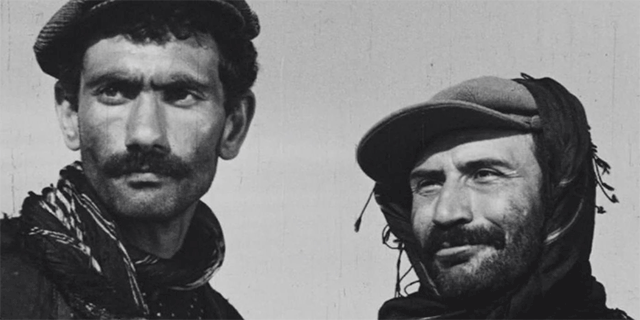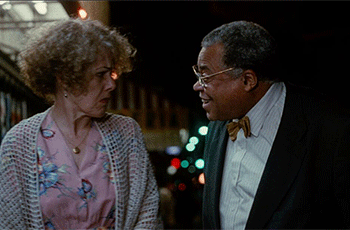
The International Western That Was Saved From Only One Copy
Cathal McGuinness 07/21/2024Most audience members probably haven't sat down to watch a film and thought, "Wow, imagine if this film weren't here anymore." Sadly, that can be the case, particularly with older films. The Mountain Eagle, the second film Alfred Hitchcock made, has been lost to the scourge of time. So, too, has The Patriot, an Ernst Lubitsch film from 1928 that was nominated for Best Picture. The most famous example is Jerry Lewis' 1972 Holocaust film The Day the Clown Cried, unseen by audiences not by luck but because Lewis was ashamed of his work and refused to let the film see the light of day. Then, there are films presumed lost but that have eventually been found. Carl Theodor Dreyer's totemic The Passion of Joan of Arc of 1928 was an incomplete film until a full, original copy was found in 1981 by a cleaner in a Norwegian mental institution. Metropolis, the magnificent and highly influential science fiction film from 1927 by Fritz Lang, only had its complete version discovered in 2008 in Argentina. And we wouldn't even have Toy Story 2 after a computer bug wiped most of Pixar's servers if it weren't for one technical director having a backup copy on their home hard drive.
There is one more dramatic reason we have a certain film to watch nowadays: the last surviving copy was snuck out of its country during a coup d'état.Law of the Border is a 1966 dramatic western from Turkey whose survival today is down to a few hardy fans who sought to preserve the film for its artistic merits. The Turkish government was cracking down on artistic productions with a political edge, including Law of the Border. The background to this film seems more like a film by Costa-Gavras than anything else. The film's star, Yılmaz Güney, fled the country in the 1970s after he was convicted of murdering a judge, and so his films were sought for destruction. He was also a controversial figure in Turkey because he was of Kurdish origin. His supporters helped smuggle the last extant copy of the film out of the country, and it remained in Europe safe from Turkish authorities until it was picked up for restoration by the World Cinema Project, Cannes Film Festival in 2011, which is no surprise as this little film packs a significant punch with a serious political message underneath.
Why Did They Want to Destroy 'Law of the Border'?
Turkey has often, unfortunately, been a country that has suffered from political unrest and violence. The 1960s and 1970s in the country were marked by significant turmoil, characterized by military coups, political instability, and social upheaval. The decade began with the 1960 military coup, which overthrew the democratically elected government, leading to a period of military rule and the execution of Prime Minister Adnan Menderes in 1961. The 1970s saw a rise in political violence, with clashes between leftist and rightist groups, labor strikes, and student protests. Economic difficulties and social inequality fueled widespread discontent, further destabilizing the political landscape. This period of unrest culminated in the 1980 military coup, which aimed to restore order but led to severe repression, human rights abuses, and the establishment of a repressive military regime.
It was in this world that Law of the Border was born, emerging in 1966, from director Lütfi Ömer Akad. His oeuvre focused on social realism more than anything, depicting Turkish life as it was. He was never involved in political turmoil, but Law of the Border brought him as close to that as possible because of its star. Güney. He had always been involved in leftist causes during his emergence as an actor and filmmaker, with his films of urban poverty and hopelessness drawing the vicious attention of the Turkish censors. His films stylistically took influence from the Italian neo-realism popularized by Roberto Rossellini and Vittorio De Sica in the 1940s and 1950s.
Güney was arrested and imprisoned for a week in 1971, thus leaving Istanbul to move inland away from the authorities that sought to put an end to his career. He was arrested the following year and imprisoned for two years. After release, Güney made two more films before being arrested for the murder of a conservative judge, a charge against which he always maintained his innocence. During this imprisonment, Güney wrote scripts for The Herd and Pol, and the latter won the Palme d'Or at the 1982 Cannes Film Festival. He was able to attend this award ceremony because he escaped from prison by, apparently, walking out the front door. Not quite a Clint Eastwood prison break, then. Güney's films were characterized similarly by their social realism and depiction of impoverished people, often subliminally criticizing the powers that be. His work was ordered to be destroyed, but one ardent supporter found a copy of Law of the Border and snuck it across the border, thus preserving the film for posterity.
So, What is 'Law of the Border' About?
Hıdır's life takes a turn when an old friend, a teacher named Ali (Pervin Par), arrives in the village. Ali tries to convince Hıdır and the villagers to abandon smuggling and seek legitimate livelihood, believing that education and honest work can offer a way out of their dire circumstances. Despite his respect for Ali, Hıdır is skeptical. The local police, led by a harsh and corrupt commander, intensify their efforts to stamp out smuggling. The villagers, including Hıdır, are caught between the relentless pressure from the authorities and their desperate need to provide for their families.
Tragedy strikes when Hıdır's son is killed in a skirmish between the smugglers and the police. Devastated and driven by a desire for justice, Hıdır takes a stand. He joins forces with Ali and other villagers to confront the authorities and demand better conditions and opportunities for their community. The climax of the film is a powerful confrontation between the villagers and the government forces, highlighting the themes of resistance, sacrifice, and the quest for dignity. Hıdır's transformation from a resigned smuggler to a determined leader, quite similar to the plot of one of Akira Kurosawa's best films, symbolizes the broader struggle of the oppressed against systemic injustice.
Is 'Law of the Border' Any Good?
Absolutely. Law of the Border is a hearty, intense Western-style film about a desperate father who will stop at nothing to do what's right for his children, like Atticus Finch in To Kill A Mockingbird or Chris Gardner in The Pursuit of Happyness. The film's realistic portrayal of life in a border village captures the struggles and resilience of its characters, making the narrative compelling and having a greater impact at an emotional level. Güney's performance as Hıdır is praised for its depth and realism. His portrayal brings a strong emotional resonance to the film, supported by a more than capable cast. The stand he takes against local police corruption isn't dissimilar from that taken by a masked English vigilante in the near future.
Akad's direction, combined with Ali Uğur's bracing, harsh cinematography, creates a visually striking and immersive experience. The use of the stark landscape enhances the film's themes and mood. It is very reminiscent of The Great Silence, one of the great European spaghetti Westerns from the 1960s, in how it depicts barrenness and deserted space. The powerlessness the local villagers feel is reflected in the desolate nature of their landscape and the world. The film addresses significant social issues such as poverty, oppression, and the impact of government policies on marginalized communities. Its critical perspective on systemic injustices adds layers of meaning and relevance. Law of the Border chooses to stand up against its societal system, even if the creators were painfully aware of the consequences of their actions.
What is the Legacy of 'Law of the Border'?
Law of the Border paved the way for Turkish cinema, landing it on the world stage and letting all other corners of the cinephilic world know Turkish cinema was arriving. It is a landmark in Turkish cinema, representing a shift towards more socially conscious filmmaking. It played a pivotal role in the careers of Akad and Güney, who are key figures in Turkish film history and whose successes have opened the doors to artists like Nuri Bilge Ceylan, whose 2014 film Winter Sleep too won the Palme d'Or. Turkish films are being produced by Netflix and are appearing on screens worldwide now, all thanks to Akad and Güney.
The background story to Law of the Border is almost as interesting as the film itself, but don't let that take anything away from the film. It can be tough to find because the restoration by the World Cinema Project was only able to do so much, working off the scratched and damaged copy of the film that was snuck out of the country. It is screened at retrospectives, film festivals, university film clubs, and art-house cinemas. The Criterion Collection also released the film on DVD as a double feature with Edward Yang'sTaipei Story. It is worth mentioning that copies of the film can be requested from the World Cinema Project's website, which it must be said is a fantastic initiative and a brilliant way to bring these smaller, lesser-known films to wider audiences.
Any fan of cinema who likes to explore new horizons will get a lot out of Law of the Border and will discover for themselves the magical and fascinating world of Turkish cinema. The film is considered a must-watch for its powerful storytelling, strong performances, and significant social commentary, making it a highly regarded film in Turkish and international cinema. No fan who manages to view the film will regret it. It is these exact films that can make us all remember why we love the art form in the first place.
Law of the Border is available to watch on The Criterion Channel in the U.S.
Collider